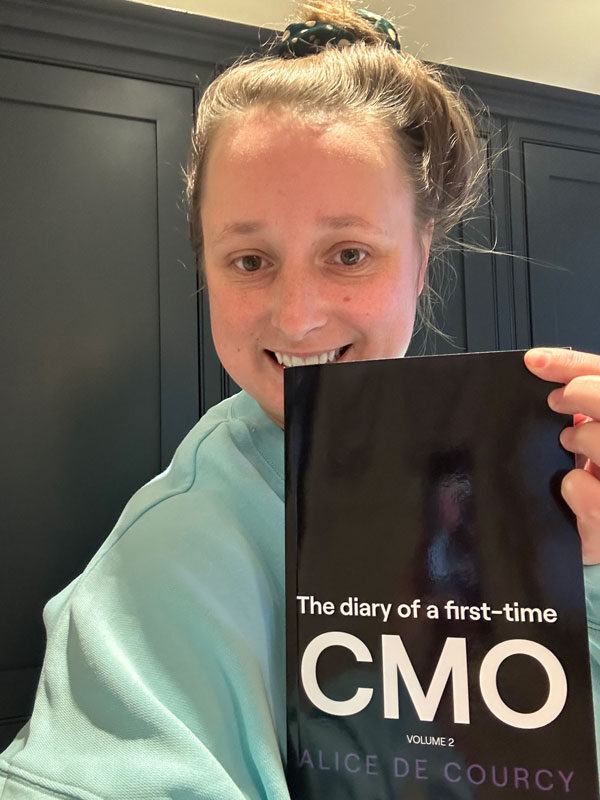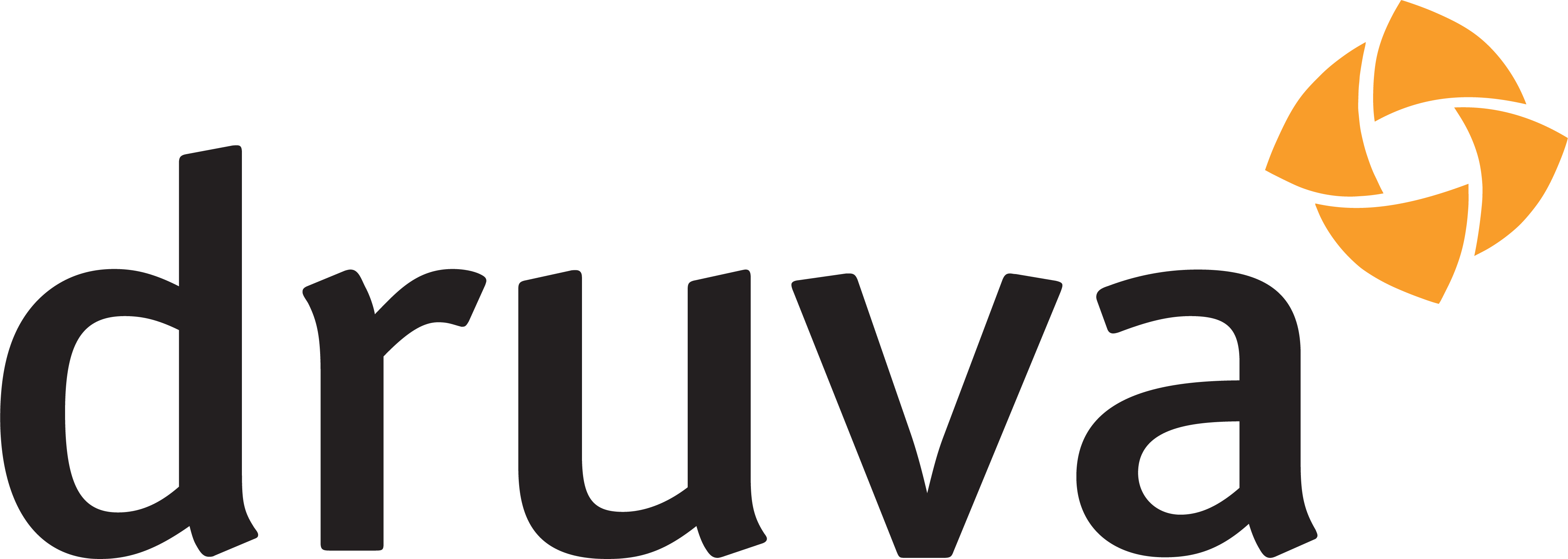Diary of a first-time CMO
Hey B2B marketers 👋
Here it is. My diary of being a first-time CMO in marketing! 5+ years in seat, on our way to breaking the 100M mark and expanding into new regions. I’ve learned a lot in my time at Cognism!
And I’m sharing it all with you. My diaries cover the key learnings I’ve gathered from the past half-decade leading Cognism's marketing.
It’s my handbook for B2B marketers looking to thrive in leadership (especially if you’re as daunted as I was when I started out!).
What's on this page
Buy the books
I asked on LinkedIn what formats to put this diary in, and the answers were very mixed.
So we’ve created both volume 1 and volume 2 of my diary of a first-time CMO in audio and digital formats—and if you’re like me and prefer to read a physical book, we have that, too!

What people are saying
Our Podcasts
Alice de Courcy unpacks the ‘aha’ moments and lessons that helped her create a CMO strategy to scale Cognism from $5m to $40m ARR. And it’s all available in audio format, for free, here!
Diary of a first-time CMO Volume 1
Diary of a first-time CMO Volume 2
Subscribe to our newsletter
Continue to get expert insights from Alice and the Cognism team straight to your inbox
Want to stay in ‘the loop’ on what’s working in B2B marketing? Subscribe to The Loop newsletter, and we’ll send you:
- Tactics and strategies that are working for us.
- Insights from our continued journey scaling a demand gen engine.
- Our learnings from expanding into new regions and moving up market.
- And more insights to power your CMO marketing strategies!
Join the community!
Diary of a first-time CMO FAQs
A CMO in marketing stands for “Chief Marketing Officer.” This position involves a high-ranking executive responsible for overseeing the overall marketing strategy. They are in charge of all the primary marketing functions, such as brand management, market research, communications, and the management of distribution channels.
If you’re wondering how to become a marketing CMO or want to take your strategy to the next level, a good place to start is by reading Diary of a First-Time CMO—Volumes One and Two.
Alice isn’t shy about sharing her challenges and wins and how she devised her own CMO strategy after pivoting from lead gen to demand gen.
All the B2B marketing tips and advice you’ll ever need are inside these pages.
YES! Alice’s winning CMO strategy is all inside Volumes One and Two of her Diary of a First-Time CMO.
The best part is that you can learn everything she has in whichever form you like: audio, PDF, eBook, or physical book, for free or to purchase. The choice is yours, but we warn you: What’s inside might very well change your CMO marketing mindset forever!
About Cognism
Drive lasting growth with the most accurate B2B data
Connect with the right decision-makers and fuel your sales pipeline with precision. Cognism’s senior-level contact database helps your team build sustainable revenue growth across target markets.
Why Cognism?
- Best-in-class data accuracy for a reliable, growing pipeline
- Streamlined prospecting workflows with targeted insights
- Real-time data enrichment to keep your CRM fresh and actionable
%20asd_Enrich%20Landing%20Page%20Images%201-compressed-1.jpg)
4000+ customers choose Cognism for better data quality, unrivalled customer service and higher ROI.







